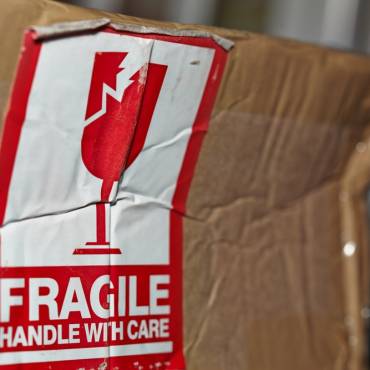As one of the fastest-paced industries in the world, leaders in the transportation industry have to be ready for anything, from global pandemics to extreme weather. Changes in transportation regulations can change the way your business operates on a day-to-day basis, making it imperative to adapt to a changing landscape.
Below, learn more about the latest current and proposed transportation industry changes, and how they affect brokerages, carriers, truck drivers, and more logistics professionals. Plus, discover how you can meet each new challenge head-on.
What’s Happening With the Department of Transportation Regulations?
As of 2025, the Department of Transportation (DOT) changed or removed 52 different regulations, designed to eliminate redundancies or streamline filing. At the same time, the current administration’s enacted and planned policy changes would affect international trade and truck drivers, adding new taxes and fees or adding new regulations.
New Transportation Regulations to be Aware Of
Cross-border shipping protocol changes
The United States requires all imports from overseas to go through customs, with an exception called “de minimis.‘ Under the de minimis exception, goods under $800 in value were allowed to enter the US duty-free with minimal duties, taxes, and fees.
However, the US government recently repealed the de minimis exception for Chinese imports, which is currently set to go into effect on August 29th, 2025. After the date, low-value Chinese goods will be subject to all applicable duties and taxes, including the currently planned 15–20% tariff.
How to adapt: Businesses and shippers who import Chinese imports may need to raise their fees to offset new customs costs. If feasible, some brands may consider changing suppliers to one located within the US, or in a country unaffected by the de minimis repeal.


Broker Transparency
The FMCSA and the DOT have a new proposed rule that would affect filing for brokered freight. Under the new rule, brokers would have to maintain all transaction records digitally and be required to supply them on request within 48 hours. The rule would also prohibit waiving the right to receive records in contracts.
The new regulation aims to increase transparency between brokers and carriers, eliminate instances of fraud and double-brokering, and increase convenience for carriers.
How to adapt: Brokerages may need to upgrade their electronic filing systems or invest in expanded customer service to meet new record requests.
CDL Medical Exam Changes
Drivers with a commercial driver’s license (CDL) need to pass a medical exam every two years. Previously, carriers were required to verify that the medical examiner was certified, keep a paper copy of the exam, and submit it to the state driver’s license agency. Drivers also needed to carry their medical card for 15 days after their exam.
As of June 2025, the medical examiner now submits the results of their exam directly to the FMCSA, which then submits it to the state. Drivers no longer need to carry hard copies of their medical exam, either. These changes are designed to streamline the medical exam and certification process and eliminate potential fraud through forged medical cards.
How to adapt: Enjoy the extra time! Carriers and self-employed drivers no longer need to do the paperwork themselves, allowing them to focus their energy on other tasks.
English Language Requirements
An April 2025 executive order enacted a new law impacting English as a Second Language (ESL) CDL drivers.
The new law replaces the previous “English Language Proficiency Testing and Enforcement Policy, replacing it with a new set of guidelines. Under the new guidelines, drivers must have sufficient English skills to “understand highway traffic signs and signals” and “respond to official inquiries, [and] entries on reports and records.” Violations can result in drivers being placed out of operation.
How to adapt: For employers, consider investing in language training programs or courses for any ESL drivers on staff.
CDL Alcohol Violation Reporting Changes
As of November 2024, CDL drivers who have drug and alcohol violations will now automatically have their licenses downgraded to “prohibited” status. The Federal Motor Carrier Safety Administration (FMCSA) will share information on violations with state driver’s license associations, which will downgrade affected drivers.
Since this process happens automatically, drivers may not be directly notified after a failed test and should check with their state associations. To regain their CDL, drivers must complete a return-to-duty process and manually notify the state driver’s license associations.
How to adapt: Employers are required to regularly query to ensure none of their staffed drivers have any current violations.
An FMCSA & DOT Compliance Checklist
Need a cheat sheet for these new regulations? Here’s an FMCSA & DOT compliance checklist with these new regulations in mind.
- Upgrade online record-keeping to meet new brokerage document requirements.
- Adjust pricing on shipping imports to offset the minimum repeal on Chinese imports.
- Consider alternate suppliers in countries unaffected by the Chinese de minimis repeal.
- Invest in English language training for ESL drivers.
- Proactively check for CDL violations to ensure that drivers remain compliant.
Work with A Cutting-Edge New England Trucking Company
At N&D, we take regulations seriously and are always looking toward the future, which helps us give our clients the best results in the industry. Trust us to provide the fastest delivery times, best rates, and friendliest customer service in Rhode Island. Contact us today to learn how a Rhode Island trucking company can revolutionize your logistics needs.



